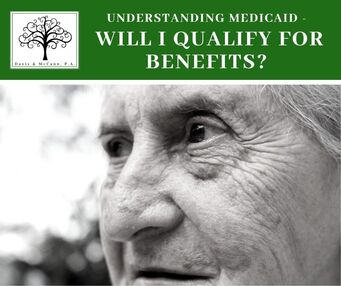 When a person needs help paying for skilled nursing care, they can apply for government Medicaid assistance. In Kansas, the state agency administering Medicaid benefits is known as KanCare. To qualify for KanCare benefits, you may not have more than $2,000.00 in total countable resources. What are “countable resources”? Sometimes referred to as liquid assets, countable resources are assets that the government has determined an individual can easily convert to cash to pay expenses such as skilled nursing care. Examples of countable resources include: cash, stocks, bonds, investments, savings and checking accounts, certificates of deposit (CDs), retirement funds (excluding pensions) and real estate (excluding your personal residence and business income producing assets, like farmland). Some assets not typically considered “countable” by KanCare when determining your eligibility for benefits include: personal keepsakes and belongings, household goods and furnishings, one vehicle (under some situations, like if a spouse is still living at home), life insurance policies without a cash value, burial plots, irrevocable funeral plans with cash of less than $7,000.00, and your personal residence. If you have gifted away any assets within the five years prior to your nursing home admission date, KanCare will use the value of those assets to calculate a penalty period. A penalty period is a time that an individual is not eligible to receive Medicaid benefits. It’s important to note that assets that have been gifted, either outright or into a trust like a Medicaid Asset Protection Trust, more than five years before an individual applies for Medicaid benefits are not countable for Medicaid eligibility purposes under current law. If a person has more than $2,000.00 in countable resources, they will not be considered Medicaid eligible until they have done what is commonly referred to as a “spenddown”. However, it is important to note that not all of the assets that must be spent down have to be toward the nursing home care. Instead, an individual can use some of their countable resources for their own benefit, so long as the expenditure abides by Medicaid rules. Depending on your unique situation, these expenditures might include: prepaying for funeral and burial expenses up to a specified amount, paying some debts, doing certain home improvements, particularly if a spouse is still living at home, paying medical bills (doctor, dentist, vision), purchasing clothing for the individual being admitted, or even purchasing a vehicle in some instances. To ensure your expenditures will meet with Medicaid approval, you might want to run your spenddown plan by an elder law attorney prior to moving forward and please keep receipts and records. If KanCare challenges the validity of your purchases, you must be able to prove that the expenses met their guidelines. If you have questions about Medicaid planning or long-term care planning, contact Davis & McCann, P.A., Dodge City, Kansas at 620-225-1674. We are members of Wealth Counsel, a national consortium of Estate Planning Attorneys and the National Academy of Elder Law Attorneys (NAELA). We focus our practice on providing clients with the best legal advice on Estate Planning, Medicaid and Long-term Care Planning, Special Needs Planning, Family Business/Small Business Succession Planning, Probate, Trust Administration, Real Estate, 1031 Exchanges, and related matters. Comments are closed.
|
NEWS YOU CAN USEDavis & McCann, P. A., Archives
April 2021
Categories
All
|

 RSS Feed
RSS Feed